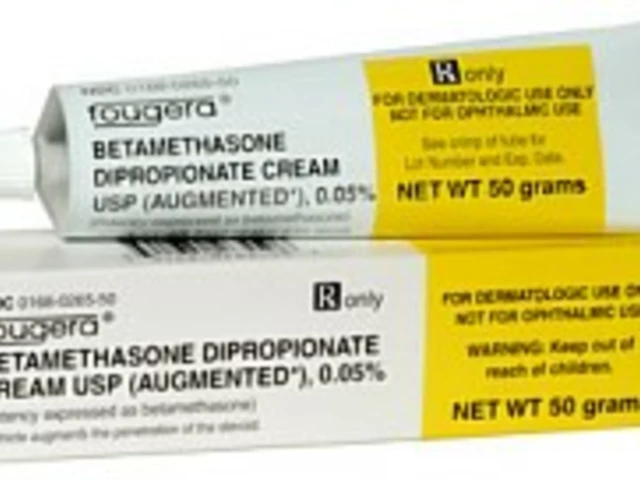Understanding Betamethasone
In the medical world, betamethasone is a well-known corticosteroid that is commonly used to counteract swelling and inflammation. This medication, which is available in various forms, such as creams, ointments, lotions, and injections, is often used as a treatment for numerous skin conditions in adults. However, you might wonder, is it safe to use for babies too?
This is a question that many parents ask. It's natural to be concerned, especially when it comes to the health of our little ones. So, in this section, we will delve into what betamethasone is, its uses, and its effects on the body.
Uses of Betamethasone for Babies
It might surprise you to know that betamethasone is sometimes used in neonatal care. One of the primary uses of this medication in newborns is to enhance lung maturity in preterm babies. If a baby is at risk of being born prematurely, doctors may administer betamethasone to the mother to help the baby's lungs develop more rapidly.
Aside from that, betamethasone is also used topically for babies with certain skin conditions. However, this usage is generally limited and should always be under the strict supervision of a healthcare provider.
Betamethasone: Is it Safe for Babies?
Now, let's address the elephant in the room: is betamethasone safe for babies? The answer is, it can be safe when used appropriately and under the guidance of a healthcare professional. Like any medication, betamethasone can have side effects, and these risks tend to increase with prolonged usage.
It's worth noting that the skin of infants is much thinner and more permeable than that of adults, making them more susceptible to the potential side effects of topical steroids. Therefore, it is crucial to follow the doctor's instructions when using this medication on babies.
Potential Side Effects of Betamethasone in Babies
While betamethasone can be beneficial for babies, it's important to be aware of the potential side effects. If used excessively or for prolonged periods, topical betamethasone can lead to skin thinning, stretch marks, and even systemic absorption leading to growth suppression in children.
For babies who receive betamethasone injections before birth, there may be a slight increase in the risk of neurological conditions such as cerebral palsy. However, the benefits of improved lung maturity often outweigh these risks in preterm babies.
Guidelines for Betamethasone Use in Babies
Given the potential side effects, it's essential to follow specific guidelines when using betamethasone for babies. First and foremost, it should only be used under a doctor's supervision. The doctor will determine the right dosage and application method, depending on the baby's condition and overall health.
Moreover, it's crucial to monitor the baby closely for any signs of side effects. Any unusual changes should be reported to the doctor immediately. And remember, the use of betamethasone in babies should be as brief and minimal as possible to reduce the risk of side effects.
Conclusion: Balancing Risks and Benefits
In conclusion, while betamethasone can be used for babies in certain situations, it's a decision that should be made carefully with a doctor's guidance. The potential benefits, such as improved lung maturity in preterm babies, must be weighed against the possible risks and side effects.
As parents, it's our responsibility to stay informed and vigilant. When it comes to the health of our little ones, it's always better to be safe than sorry. Therefore, always consult with a healthcare provider before starting any new medication for your baby.






Post A Comment